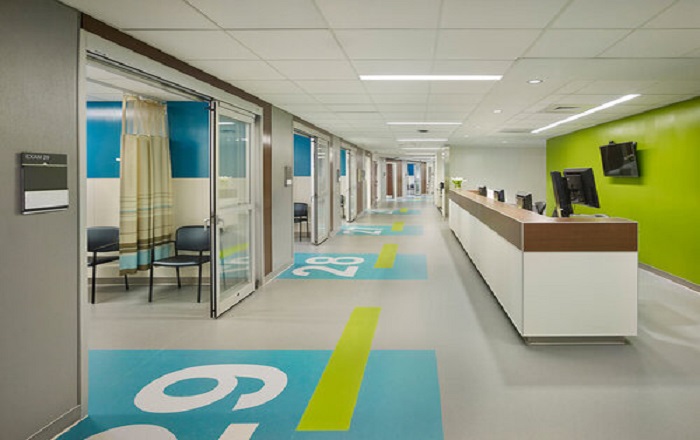The word hospital comes from the Latin hospitium which means: a place to receive strangers. Over time, the definition of a hospital has changed from a temple to a monastery. The hospital served as a hospice for the poor, while the rich were treated at home. Since hospital buildings emerged in the year 529 in the West, little by little the infrastructure has been transformed, and, with time, for example, at the end of the 19th century, the construction of hospitals was focused on optimizing performance.

The incorporation of the latest technology into medicine is changing the concept of patient care at all levels. Hospitals will have to adapt to the needs of reducing hospitalization areas, but they will be compensated by new areas of assistance service, such as prevention, home care, ambulatory medicine, and surgery without admission.
One of the sectors that are expected to change the most for the future is health, and without a doubt, its spaces, form of care, and technology that it will address are themes that generate uncertainties and expectations. But, beyond what the future may inspire or suggest, what is an indisputable fact is that technology advances every day and at an incredible rate. And when it comes to medicine and the advances it provides to human evolution, there is a lot of fabric to cut from, as science will have great relevance for the survival of our species on this planet. How will this be possible?
Artificial intelligence, robotics, telemedicine, and new interaction technologies will be essential in hospitals or clinics, operating rooms, and offices. For example, care will be decentralized, remote consultations and visits to hospitals will only be made when they are extremely urgent or very serious.
● The robots will carry out routine tasks that some nurses currently perform, who
will assume tasks assigned to the doctors, and these, in turn, will be able to
dedicate themselves to performing other tasks that will give greater value to the
care process.
● Telemedicine will be of help when we do not have to travel to the health centre. With this idea, it is intended that a medical team can monitor our diseases and
cover areas that are difficult to access to specialist doctors.
● Portable devices such as hearables (health assistants in the ear) will allow us to monitor our vital signs with sensors that will be connected to the Internet or some artificial intelligence algorithm.
In general, the hospitals of the future will have new technologies that will also respond to a new and changing society to which, surely, like many more, you and I belong. We will have a greater life expectancy and lower birth rates, although we may also have other pathologies of equal or greater complexity than the current ones.
E-Health will cover areas of prevention, diagnosis, treatment, and monitoring, to manage and reduce the costs of the system, so that, as a whole, it improves the effectiveness of medical care.
The Internet of things or wearable or portable devices, applications to monitor patients,
Big Data (massive information storage and management), robotics, among other tools, will also be the basis for the hospitals of the future.


